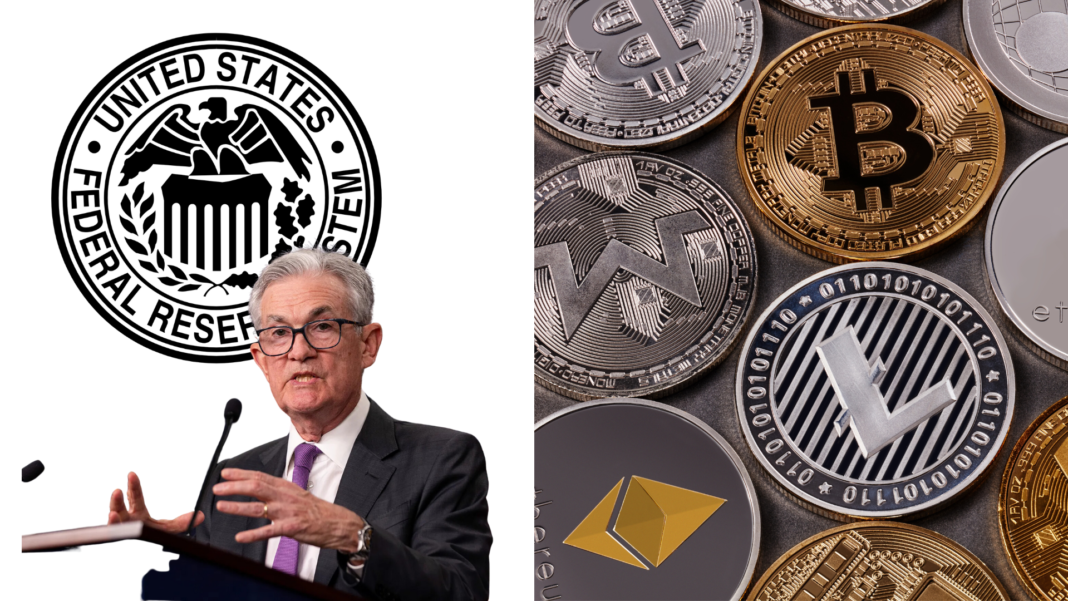In a landmark decision that signals a major shift in U.S. financial regulation, the Federal Reserve has officially rescinded a series of restrictive guidelines that had previously constrained banks from engaging with cryptocurrency-related activities.
Central to this rollback is the removal of a 2022 regulatory letter that required state member banks to submit special reports before launching or continuing any crypto asset operations.
By eliminating these procedural hurdles, the Federal Reserve is positioning itself to oversee crypto activity through traditional supervisory channels, rather than treating digital assets as uniquely high-risk.
The decision marks a broader commitment by the central bank to modernize its approach and adapt to the evolving digital economy.
Restrictions on U.S. Dollar Token Activity Also Lifted, Encouraging Innovation
In addition to crypto asset guidelines, the Federal Reserve also withdrew a 2023 policy that imposed a “regulatory no-objection” process for banks aiming to participate in U.S. dollar token initiatives.
The development includes ventures related to stablecoins and tokenized payments on blockchain platforms.
The lifting of these restrictions offers banks far greater flexibility to experiment with and implement dollar-backed digital currency solutions without facing excessive scrutiny or needing prior approval.
The decision is widely viewed as a significant step forward for blockchain innovation, opening the door for financial institutions to more confidently explore the integration of decentralized technologies into their existing operations.
Coordinated Regulatory Alignment Strengthens Policy Shift
The Fed’s recent actions did not occur in isolation but were coordinated with other major financial regulators, most notably the Federal Deposit Insurance Corporation (FDIC).
Together, the agencies withdrew two joint policy statements from 2023 that had emphasized strict oversight frameworks for banking institutions engaging with crypto assets.
The policy reversal also brings the Federal Reserve in line with the Office of the Comptroller of the Currency (OCC), which had already signaled a more flexible approach.
The Fed emphasized that while these restrictive policies are being removed, it will continue working closely with its regulatory counterparts to evaluate whether updated, innovation-friendly guidelines are necessary to ensure both progress and prudence in the financial system.
Also Read: Australian Federal Police Warn Of Crypto Text Scam Impersonating Binance
A Watershed Moment for Crypto-Banking Integration
The removal of these crypto banking restrictions is widely regarded as a transformative development for the U.S. financial sector.
Traditional banks now have a clearer, less burdensome path toward participating in the digital asset economy.
The change is expected to encourage wider adoption of crypto technologies, including blockchain-based payments, tokenized securities, and digital asset custody solutions.
By normalizing oversight of crypto activities and eliminating exceptional compliance requirements, the Fed is effectively legitimizing the role of crypto within mainstream banking.
As a result, the United States may see increased innovation and institutional participation in Web3 and decentralized finance ecosystems in the months to come.
Broader Fed Engagement with Crypto Signals Evolving National Stance
This policy shift comes as part of a broader recalibration of how U.S. federal institutions are engaging with the crypto sector.
Federal Reserve Chair Jerome Powell recently stated that banks are “perfectly able to serve crypto customers” provided they manage the associated risks.
Meanwhile, Federal Reserve Governor Christopher Waller has spoken in favor of stablecoins, advocating for both banks and non-banks to be able to participate in the sector under a robust regulatory framework.
On the enforcement side, U.S. prosecutors are seeking up to eight years of prison time for Avi Eisenberg, the trader behind the $100 million Mango Markets exploit, a case that could set a precedent for DeFi-related cybercrime.
Together, these developments underscore a rapidly shifting landscape where innovation, regulation, and enforcement are evolving in tandem to define the future of digital finance in the U.S.
Also Read: U.S Senator Lummis Plans To Push FED To Buy Bitcoin Reserves By Selling Its Gold


